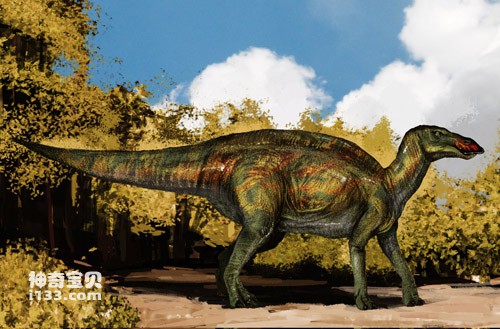Shantungosaurus was discovered at the Zhucheng Fossil Site in Shandong Province. The Zhucheng Fossil Site is located in the Dragon Bone Stream, 10 kilometers southwest of Zhucheng City. For a long time, local residents have picked up many bone fossils in the stream, which they are accustomed to calling dragon bones. After this site was discovered by a petroleum geological exploration team in 1963, a team from the Beijing Geological Museum excavated it from 1964 to 1967, collecting a total of more than 30 tons of dinosaur remains. This fossil area is now being further investigated and excavated by the Zhucheng Dinosaur Museum and the Institute of Vertebrate Paleontology and Paleoanthropology, Chinese Academy of Sciences. The dinosaur fossils buried here are of various types and categories. There are small Psittacosaurus, tall Hadrosaurus, ferocious Tyrannosaurus, bulky sauropods, and numerous dinosaur egg fossils. Near Longgu Stream, dinosaur fossils can be seen everywhere, some exposed on the steep slope surface, and some mixed in the sand and gravel. Therefore, it is known as the "Hometown of Dinosaurs" in northern China.
The type specimen of Shandongosaurus is about 14.72 meters long. It is the largest ornithopod dinosaur in China. It has a long, low and narrow head, and a total of 60 to 63 alveoli in the dentition. In general, the tooth structure is very similar to that of Edmontosaurus.

Chinese name: Shandong Dragon
Latin name: Shantungosaurus
Age of survival: Late Cretaceous
Fossil origin: Shandong, China
Physical characteristics: 12 to 15 meters long
Diet: plants
Species: Ornithopods
Definition: Lizard from Shandong
animal tags: Shantungosaurus
We created this article in conjunction with AI technology, then made sure it was fact-checked and edited by a Animals Top editor.